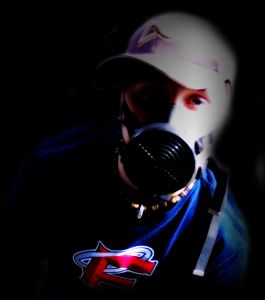 Just as symptoms of cardiovascular dysfunction are often wrongly assumed to be the result of physical illness by stress, tension or depressed people, symptoms of stress result in breathing abnormalities. They may also be seized upon subconsciously as evidence of physical disease. In both instances, these symptoms may well provide evidence of someone with a depressed mood, as well as of someone who is suffering from unacceptably high levels of anxiety and tension.
Just as symptoms of cardiovascular dysfunction are often wrongly assumed to be the result of physical illness by stress, tension or depressed people, symptoms of stress result in breathing abnormalities. They may also be seized upon subconsciously as evidence of physical disease. In both instances, these symptoms may well provide evidence of someone with a depressed mood, as well as of someone who is suffering from unacceptably high levels of anxiety and tension.
In ninety-nine out of 100 cases, such symptoms as circum-oral parasthesia (numbness around the mouth), tingling in your fingers and toes and even spasm in your hands and feet are not signs of an imminent stroke. To have a stroke is one of the persistent fears of anxious people, and it is one that may be heightened by the symptoms of hyperventilation. Fortunately, the tingling and spasm have nothing to do with strokes, but are caused by over-breathing, not disease. To correct the symptoms of subconscious panting (hyperventilation), breathe slowly and deeply for a time. An even more effective is to breathe in and out of a paper bag so that re-inspire your expired breath. The symptoms then disappear like magic. Never use a plastic bag.
Circum-oral numbness felt at a party is interesting. You may have attributed this to some unexpected side-effect of alcohol or to the amount you’ve drunk, but in fact, the principal cause is that, in the exuberant party atmosphere, you’ve been breathing more rapidly, talking more intensely and have actually been panting with excitement, although you might not have noticed it. Excess alcohol may play a part in inducing the sensation by increasing the respiratory rate, and even by having some neurological effect, but this is only a small factor. It’s hyperventilation that causes it.
Carpopedal spasm – Spasm in the hands and the feet is a very weird and worrying feeling. It is never related to a stroke, but only occurs because hyperventilation has upset the natural biochemical balance of the body.
Stress Breathing Problems –
Typical symptoms of breathing troubles that may be brought on by tension are revealed by the following questions.
- Have you noticed that you are breathing more rapidly, but despite this, you feel short of breath
- Do you ever take long, sighing respiration (air hunger) as you strive to relieve your hunger for air
- Do you feel out of breath, even though you have only been sitting in a chair and not exercising
- Have you noticed that when and if you have been hyperventilating, the skin around your lips feels fractionally numb? That you have circum-oral paresthesia
- Have you noticed that your fingers and toes tingle if you are breathing too rapidly as a result of your anxiety? (Parasthesia may not be confined to the lips.)
- Even more alarming, have you been aware that, as well as the tingling in your hands and feet, you have also noticed that they are going into spasm
- Do you ever feel that everybody is talking from a great distance, rather as if you are swimming underwater in a pool, and friends are talking to you from the edge of that pool? This, too, can be a symptom of hyperventilation
